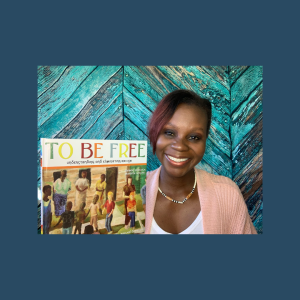Today, we will focus on a fantastic read called To Be Free: Understanding and Eliminating Racism by Thomas Peacock and Marlene Wisuri. I picked this book as a really great guy to help you on your journey of multicultural awareness and talk about the social construct of race and the systems in place. And it’s not just a black and white issue. It’s a multifaceted issue that needs to be addressed. And what I love about this book is The chapters are very, very well written.
They are very straight to the point. It talks about how we are all related and finding our own identity as a people and as an individual. Racism throughout history and no group in here has been left out, and it’s talked about a lot of unconscious and unintentional racism biases. It is Minnesota-focused because the Science Museum of Minnesota did an excellent exhibit on race several years ago. But it talks about the history and the social constructs.
Many of us in this space right now that are not in the marginalized group come and ask me all the time, Jeb, where do I get started? I don’t even know where to begin. I’m overwhelmed. I’m not sure of my place and being an ally. How can I make those authentic connections with people that don’t look like me? And I really do recommend books like this. It does answer a lot of those questions that you might have. And you don’t have to be from Minnesota to really enjoy this book. It talks about, you know, what does superiority means, and, you know, terms like ethnocentrism and biases.
It also goes in-depth about what the terms institutional racism are. Internalized racism, you know, many people get hung up and stuck on the vocabulary. But the most significant piece about being hung up and stuck on the language is the fact of not knowing what they mean.
It is a tragedy and the loss of land of our indigenous people. And, you know, there are some graphic pictures in here. So that’s why I talked about it being for adult education only. This is not a book I would recommend in the classroom setting. First and foremost. It is a well thought well-written book. It has even talked about racial incidences. People believe that lynchings in our country’s history were primarily in the south. But that is not the case.
Where I am from Duluth, Minnesota. There was a lynching in Duluth in 1920 that lynched three young black men in Duluth, and we do have a memorial site for the lynchings of Clayton Jackson and McGee. There is talk about boarding schools with indigenous people. African Americans were denied positions and opportunities. Thomas Peacock’s memories about his life are crucial about lived experiences. It is so important. I mean, they talk about the LatinX, the Jewish faith people, the Hmong people, their stories, African American heritage, the Muslim Islamic people’s faiths, and just talking about how we still have a long way to go. But to move forward, we need to understand people of all walks of life, and they’re in their experiences as well. They talk about people of the Asian Pacific heritage.
They talk about white supremacy. In the whole circle moments that go hand in hand, they have activities that you can talk about with your families at home to promote more understanding. You know, for instance, writing down as many stereotypes as you can think of and sharing those out, you know, searching things online about things that have happened and dissecting and auditing the different viewpoints. As adults, we need to start by researching and reading books that will help cultivate conversations with our children. I think that is really important.
Another thing I really want to stress out is we need to have our own self-reflection, our own self-audit of our own overt and implicit biases, to check and correct our own authority. To review and update our own preferences. We have to do the work internally. I’m not sure if you can find it in more local bookstores in your area. But check out Afton press.com. See if you can snag yourself a copy.
I highly recommend To Be Free: Understanding and Eliminating Racism by Thomas Peacock and Marlene Wisuri. It’s forwarded by Eric Jolly. I cannot stress this book out enough. Please get your hands on a copy share it with your book circles.
Like I said, a couple of graphic elements are not suitable for children, and they will cause harm. But as an adult, I really would love for you to take a look at this book, journal about it, process it. This will help us move forward as a society. This is all that I have for you today. Definitely check it out on Afton press.com. See if you can get yourself a copy and start the process of your own identity healing and your own community-building process of how can you be authentic. So thanks again, everyone, for joining me today on the cultural curriculum chat. Be sure to check out more resources for you on my website.
